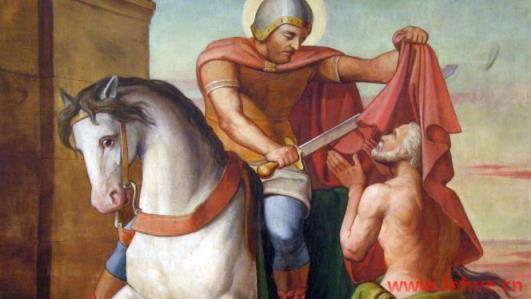 文|Bishop Barron
文|Bishop Barron
翻译|Carrie2017-11-11 朋友们,今天的福音聚焦于精明。在中世纪,人们把精明叫做“美德之后”,因为精明的人能审时度势、为所应为。精明是对道德情况的感知,就像四分卫在橄榄球场上的领导功能一样,或者像政客对其选区投票者的感觉那样。勇气、正直和自制是极好的美德,但若没有精明的伴随,这些美德是盲目的,最终是一无是处的。因为一个人可以非常勇敢,但若不懂得何时、何处以及如何使用他的勇气,那么这种勇气是无用的。Friends, today’s Gospel focuses on prudence. In the Middle Ages, prudence was called “the queen of the virtues” because it was the virtue that enabled one to do the right thing in a particular situation. Prudence is a feel for the moral situation, something like the feel a quarterback has for the playing field, or a politician for the voters in his district.Courage, justice, and temperance are wonderful virtues, but without prudence they are blind and, finally, useless. For a person can be as courageous as possible, but if he doesn’t know when, where, and how to play out his courage, that virtue is useless.
朋友们,今天的福音聚焦于精明。在中世纪,人们把精明叫做“美德之后”,因为精明的人能审时度势、为所应为。精明是对道德情况的感知,就像四分卫在橄榄球场上的领导功能一样,或者像政客对其选区投票者的感觉那样。勇气、正直和自制是极好的美德,但若没有精明的伴随,这些美德是盲目的,最终是一无是处的。因为一个人可以非常勇敢,但若不懂得何时、何处以及如何使用他的勇气,那么这种勇气是无用的。Friends, today’s Gospel focuses on prudence. In the Middle Ages, prudence was called “the queen of the virtues” because it was the virtue that enabled one to do the right thing in a particular situation. Prudence is a feel for the moral situation, something like the feel a quarterback has for the playing field, or a politician for the voters in his district.Courage, justice, and temperance are wonderful virtues, but without prudence they are blind and, finally, useless. For a person can be as courageous as possible, but if he doesn’t know when, where, and how to play out his courage, that virtue is useless.

微信小程序
微信扫一扫体验

微信公众账号
微信扫一扫加关注
顶部
